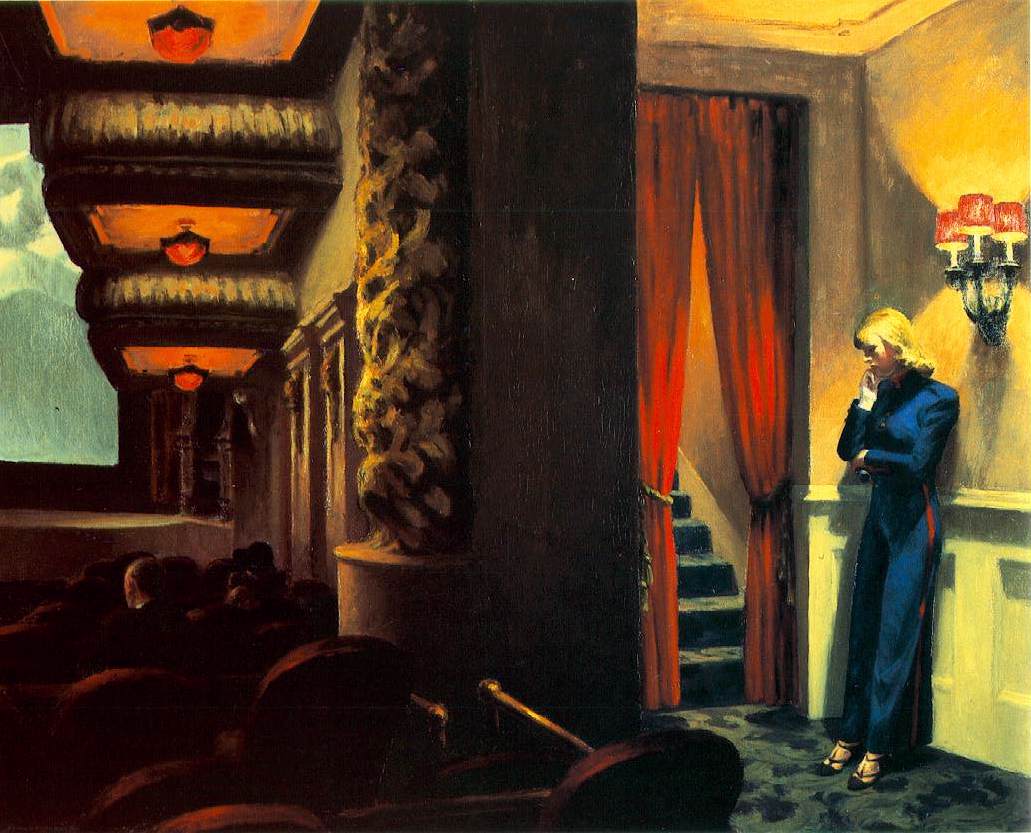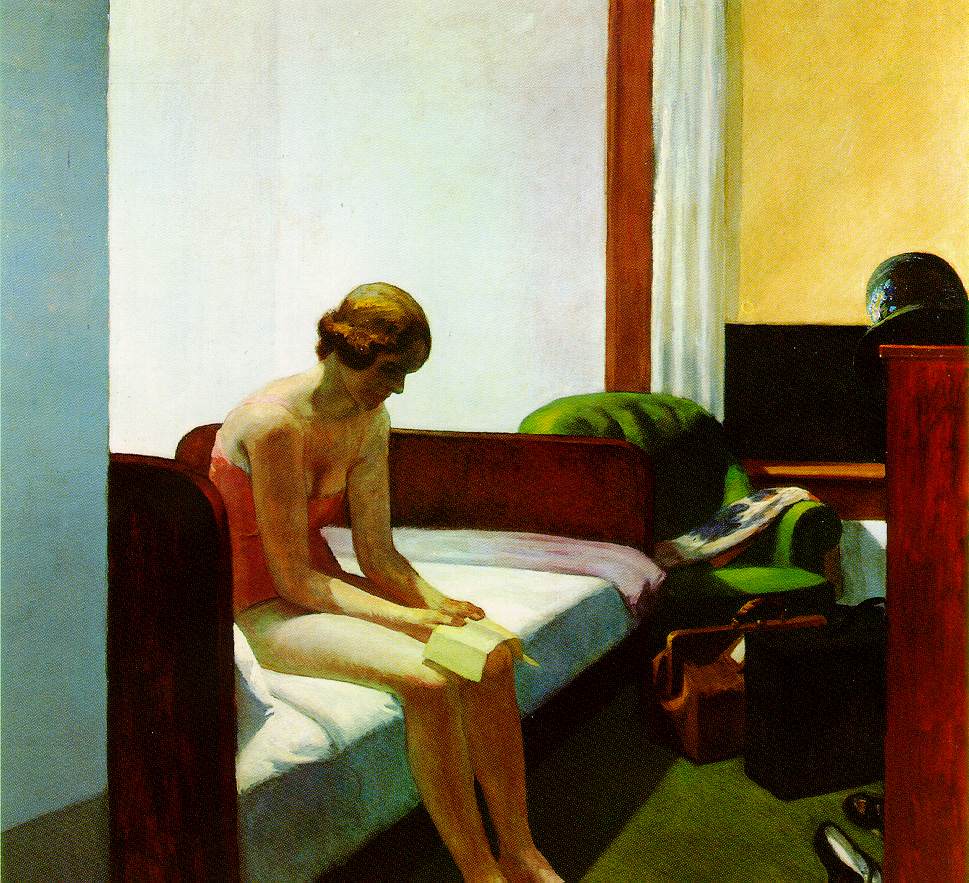.

Samuel Johnson on Measure for Measure
III.i.14 (63,3) [For all the accommodations, that thou bear'st Are nurs'd by baseness] Dr. Warburton is undoubtedly mistaken in supposing that by baseness is meant self-love here assigned as the motive of all human actions. Shakespeare only meant to observe, that a minute analysis of life at once destroys that splendour which dazzles the imagination. Whatever grandeur can display, or luxury enjoy, is procured by baseness, by offices of which the mind shrinks from the contemplation. All the delicacies of the table may be traced back to the shambles and the dunghill, all magnificence of building was hewn from the quarry, and all the pomp of ornaments dug from among the damps and darkness of the mine.

James Buchan on Money
*
For money to serve you, you must believe in it; if you doubt it a moment, it vanishes, like a ghost. What happened at the turn of the 1930s was that Americans lost faith in money. People stopped borrowing and bankers stopped lending... Most [Americans] felt quite helpless. Because they had believed that the markets of the 1920s were real, when those broke it seemed to Americans that reality had been turned upside down: that the snow of the 1929 winter, in Fitzgerald's formulation, was somehow of a different order because it was wet and cold and nobody swept it away, because, in short, money couldn't make it vanish.
Reality was suddenly transformed, not just in the market indices but in the hard, sensuous world that had been forgotten, which was now a world of street corners and ruined family farms and busted banks and men walking from town to town shooting vermin for food. In that transfiguration --- the moment so prized by the Greek tragedians in which the hero recognises that he has been made mad -- things stood out in hard, unyielding concreteness. Corporations emerged from behind their stock symbols as cold furnaces and shuttered gates; bank presidents made grovelling fools of themselves before government committees; crowds dissipated into lonely, struggling individuals. In certain of Hopper's paintings of that period Americans are shown in a cold, mute isolation, squatters in their own civilisation. A little drawing in a gallery I saw on Madison Avenue, two zeroes to represent the tops of gasoline pumps, three undulating lines to show the telephone wires loping away into infinity, a squiggle that represents the open bonnet of a Ford, still fills me with the sensation of a desperate, pointless flight. It is the definition for me of the antique conception of panic.

James Buchan: Frozen Desire: The Meaning of Money, 1997
Paintings by Edward Hopper:
Approaching a City, 1946 (The Phillips Collection)
New York Movie, 1939 (Museum of Modern Art, New York)
Hotel Room, 1931 (Fondation Thyssen-Bornemisza)
I think you’ve really caught the zeitgeist here, which to me is panic papered over by the empty but constant activity represented by “social media” and “networking” websites. No silence or time for reflection permitted. The phrase “The Conversion Of Eden” has been haunting me, its implications being broader and more profound than Buchan’s real estate speculation description. I tend to think of conversion in terms of its legal/torts definition: “The unlawful turning or applying the personal goods of another to the use of the taker, or of some other person than the owner; or the unlawful destroying or altering their nature.” The Hoppers , with their devastating isolation, reinforce this mood. All that being said, generalizations about Americans, by Americans but especially by non-Americans (who seem to find this device irresistible), drive me crazy and tend to be invidious, largely false and mean-spirited.
ReplyDeleteTom,
ReplyDeleteGreat -- Dr. Johnson on Measure for Measure (who knew?) and James Buchan on Money (again,who knew?) –- something here to resonate (by 'accident' of course) with such "material systems" . . . .
6.24
grey whiteness of fog against invisible
ridge, red-tailed hawk calling in right
foreground, no sound of wave in channel
configuration of bodies, not
all equal to each other
place in gravitational field,
moves, material systems
grey-white of fog reflected in channel,
line of pelicans flapping toward ridge
Stephen,
ReplyDeleteThat beautiful and grave (no sound of wave in the channel) matutinal observation has etched itself into the dense morning fog.
Curtis,
I think you and James Buchan would find many interests in common. He lived for some time in New York in the 1980s and has written very interestingly about his experiences with the US laws and courts while acting as president of a housing corporation in lower Manhattan, on whose behalf, at one point, he prosecuted a lawsuit.
Buchan opines that human beings arrange their reality by means of mental categories. The American categories, he found, included religion, hygiene and celebrity; but the two most salient categories, he discovered, were money and law ("supremely adaptable to circumstance").
Following on from his remarks about real estate of which I have included only a bit, he goes on to say:
"Yet white Americans appeared to me curiously restive in their homes, which to them are dead money, which they are for ever tempted to revive by sale or multiple mortgage. To own an unmortgaged house, car, machine -- to accumulate equity, as they say -- is to them an offence. To admire a man's beach house on the Connecticut coast or Lake Michigan, or his all-terrain vehicle, is to be told its replacement cost and its owner's equity, if any. In New York City even, where these habits of thought are most deeply entrenched, people feel that they themselves are capital, which must for ever seek its most remunerative employment; and that there is an opportunity cost -- income forgone -- in bidding you Good Day."
A interesting fellow of whom there would be more to say, but ah, the meter's running... down.
Yet oh, the Doctor Johnson quote... here we have a person talking about the things of his childhood, that is Shakespeare, which he knows by heart, and has meditated upon for years, distilling finally its life-lessons for him.
A passage from Raymond Williams has seemed consonant (and also with the title of the post):
"We need not suppose that... title began in Eden. This is where the idea of a 'traditional' order is most misleading. For there is no innocence in the established proprietors, at any particular point in time, unless we ourselves choose to put it there. Very few titles to property could bear humane investigation, in the long process of conquest, theft, political intrigue, courtiership, extortion and the power of money. It is a deep and persistent illusion to suppose that time confers upon these familiar processes of acquisition an innocence which can be contrasted with the ruthlessness of subsequent stages of the same essential drives."
"We need not suppose that... title began in Eden." The Raymond Williams passage really, really moves me.
ReplyDeleteI want to read James Buchan's book a lot (and have, in fact, ordered it from a bookseller). I already owe an enormous debt of gratitude to Buchan's famous grandfather for writing so many enjoyable and extraordinarily thoughtful novels and short stories that kept me entertained and sane during the many months I spent living away from my family at the Mundelein, Illinois Crowne Plaza Hotel several years ago. There’s clearly a genius gene in the family that has allowed them to participate in various fields of endeavor (including providing service to others) and to write so very well.
“In New York City even, where these habits of thought are most deeply entrenched, people feel that they themselves are capital, which must for ever seek its most remunerative employment; and that there is an opportunity cost -- income forgone -- in bidding you Good Day."
I “get” this (but personally feel that it’s more applicable to Los Angeles) but still conclude that: a) classifying is part of rational thinking and if James Buchan thinks that this is the ethnographic description that fits, I’m ok with it; b) I have participated in so many conversations with friends and acquaintances from other countries that have included the utterance, “you Americans”, which never precedes anything remotely positive. I would never think of speaking along the same lines to them and I say that knowing that I’m hardly an exemplary person.
However, the important thing, as I said at the beginning, is that I think you've actually captured something here that's true and, unfortunately, tragic. Observing the last two days' news cycles revolving around the McChrystal Rolling Stone story and attendant coverage and events and the ongoing Gulf of Mexico news, I can't tell if it's a widening or a narrowing gyre.
Life being short, long, large and strange, as it happens I have particular vivid memories of Mundelein, Illinois, from very long ago, when I had not yet any idea there was anything in the world BUT Americans.
ReplyDelete(Several of them were, as the mists clear, seminarians.)
Especially because of Motorola’s presence in nearby Schaumburg, and the assortment of international engineers, executives and customers constantly circulating through, the lobby and restaurant of the Mundelein Crowne Plaza can now seem eerily like the intergalactic bar featured in the first Star Wars picture. The hotel itself advertises its “Frank Lloyd Wright-style design”, but you could easily overlook it. The innkeepers are terribly nice and the beds are comfortable. I’ll admit it – it’s still a very “American” place.
ReplyDeleteCurtis,
ReplyDeleteThis --
The hotel itself advertises its “Frank Lloyd Wright-style design”
-- was worth a smile.
(I grew up in the immediate vicinity of a number of "Frank Lloyd Wright-style" structures which had in fact been built by Frank Lloyd Wright himself -- though to the eyes of a small child they simply looked like large, dark houses.)